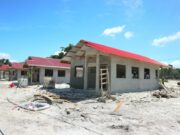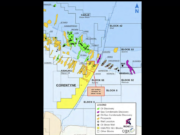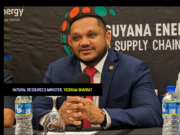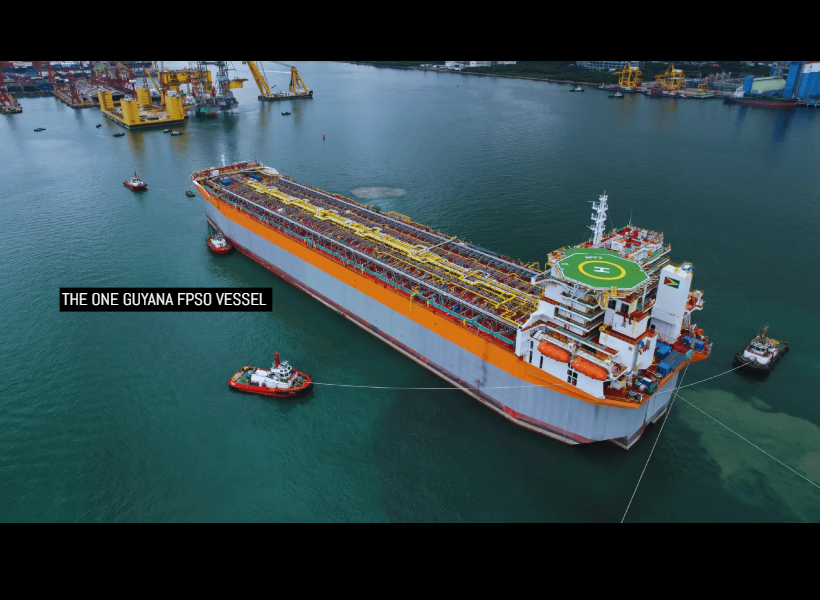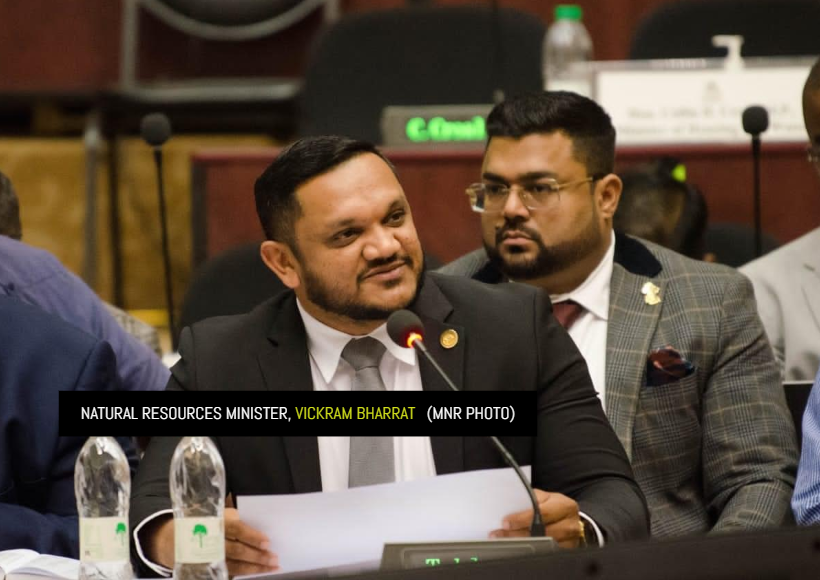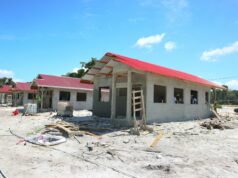Guyana is set to receive US$100 million in signing bonuses from the companies that were awarded eight prime offshore blocks. According to Natural Resources Minister, Vickram Bharrat, the signing bonuses include payments of US$10 million for shallow water blocks and US$20 million for deepwater blocks. He said they represent a key component of the new agreements soon to be finalized with these companies.
During his mid-year press briefing on August 14, Bharrat provided an update on Guyana’s first oil blocks auction, launched in December 2022. Six groups of companies have been awarded the blocks, with their contracts nearing completion.
Among the companies, TotalEnergies EP Guyana B.V., in consortium with Qatar Energy International E&P LLC and Petronas E&P Overseas SDN BHD, was awarded the shallow water block S4. ExxonMobil Guyana Limited, along with Hess New Ventures Exploration Limited and CNOOC Petroleum Guyana Limited, secured the shallow water block S8.
Nigeria’s International Group Investment Inc. was approved for two shallow water concessions, S5 and S10. Liberty Petroleum Corporation and Cybele Energy Limited, a partnership between American and Ghanaian firms, were awarded the shallow water block S7. Additionally, Guyanese company Delcorp Incorporated, in collaboration with Watad Energy and Communications Ltd and Arabian Drilling Company, was granted a deepwater block titled D1.
Making history, Sispro Inc., a consortium led by four Afro-Guyanese women, became the first group of women to secure two oil blocks in the country’s debut auction. They were found eligible for blocks S3 and D2.
Minister Bharrat emphasized that the government will not sign any agreements unless the companies are prepared to pay the signing bonuses at the time of contract finalization. He noted that Petronas, Total, and Qatar Energy have already advanced in this process, with others expected to follow shortly.
The government has also passed a new Petroleum Activities Law and introduced a modernized Production Sharing Agreement (PSA), which outlines a 10 percent royalty, a 10 percent corporate tax, and a 50/50 profit oil split, with a cost recovery ceiling capped at 65 percent annually.
Guyana’s offshore basin has drawn significant global attention since oil was first discovered in May 2015. Now recognized as a gateway to the world’s fastest-growing super basin, the region is estimated to hold potential resources exceeding 25 billion barrels of oil equivalent (boe) and an estimated reserve of over 11 billion boe in the Stabroek block alone.

